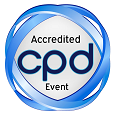Takashi Shimada,
SHIMADZU Corporation, Japan
Title: nSMOL-Development of novel LCMS bioanalytical approach by Fab-selective quantitation of monoclonal antibodies using nano-surface and molecular orientation limited proteolysis
Biography
Biography: Takashi Shimada,
Abstract
Monoclonal antibodies have become a major therapeutic strategy in cancer care. The approved antibody drugs have been about 41 items, and many clinical trials including biosimilars have been now performing in the world. For precision medicine, pharmacokinetic (PK) information in blood or disease tissue will become one of the good indicators for drug efficacy. Therefore, versatile analysis for the direct detection of antibody drugs will be desired. The LCMS bioanalysis of antibody drugs is a significant platform for the selective quantitation of antibody specific region or the feasibility of multiplex assays. For a regulated LCMS bioanalysis independent of a variety of monoclonal antibodies or biological taxonomy sources, we have focused on the two features: antibody structure-indicated method, and complementarity-determining region (CDR)-targeting quantitation.
Minimizing peptide complexity while maintaining specificity of antibody signature peptides is essential for antibody LCMS bioanalysis. To the best of our knowledge, CDR-selective preparation in antibody proteolysis has never been investigated to date. We have reported a novel method for the Fab-selective proteolysis to identify and quantify antibodies by the limiting protease access to the substrate, which we have named nano-surface and molecular-orientation limited (nSMOL) proteolysis. nSMOL enables efficient and quantitative detection of CDR peptides while decreasing the peptide numbers of the analytical target without denaturation. We have reported several papers for fully validated bioanalysis of antibody drugs. This approach will be applicable for many monoclonal antibodies and biosimilar drugs. Furthermore, the clinical PK based on LCMS may be expected to aid acceleration of the development of biopharmaceuticals.

